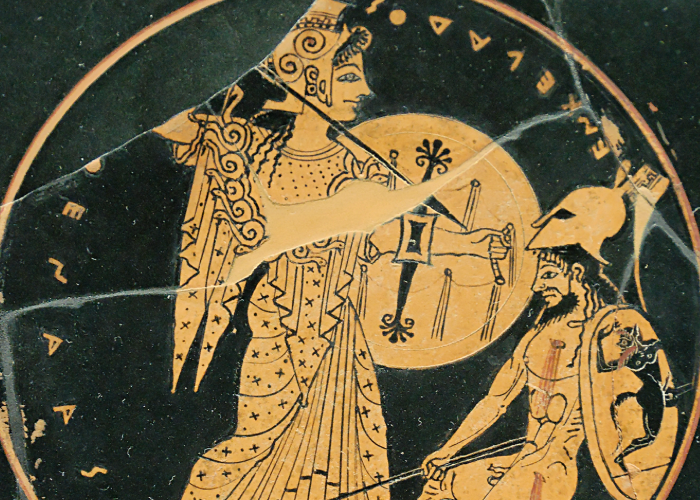Cursed by Athena is not a mythological story. Since Homer’s Odyssey is one of man’s oldest narratives, I included references to Athena and the Odyssey as a tribute to humanity’s love of a well-told story. The Greek gods could be menacing or helpful to man, and my references to Athena are no different.
How does Athena fit into a modern story?
Dr. Joseph Merrick, a research scientist, is known to be obsessed with Greek mythology. He has secretly made a breakthrough to revolutionize medicine. His secret research notes were secure, but out of whimsy and in hope of a diversion, Joseph stored them in a folder labeled Athena. As the story progresses, he and other characters call it the Athena Project.
There’s more to Athena’s presence in the novel. Colors’ life has been ruined, but she doesn’t know all the facts. She feels cursed because of the changes to her life and the seriousness of what she’s concealing.
What about Athena’s curses?
In Greek mythology there are different accounts of the same tale. Let’s start with Medusa, whom readers might know. Medusa was a beautiful Greek priestess, whom Poseidon ravaged. Her vow of celibacy in service to Athena was broken and caused the goddess to turn the beauty’s hair into writhing snakes and her skin a greenish color. If any man looked into Medusa’s eyes, they turned to stone.
Arachne, a talented weaver, challenged Athena to a weaving contest. Although angered to have a mortal dare question her weaving, Athena agreed. Both wove a cloth featuring the gods and goddesses on Mount Olympus. Athena portrayed them in a positive way, while Arachne illustrated them as drunk, hurting humans. Now furious, Athena turns Arachne into a small spider and told her to spin away.
Is Colors’ feeling of being cursed equal to the curses Athens inflicted on others?
Well, the reader will have to decide.


 Writing has been an integral part of Sherry’s life. For thirty-seven years she taught high school English in the Quincy Public Schools, making a living that incorporated her lifelong love of literature and writing.
After years of talking about writing, she is finally experimenting with her own creative writing. Sherry’s goal is to finish a novel that is fun to read. Sixty chapters and several years later, she’s in the process of self-publishing it.
Writing has been an integral part of Sherry’s life. For thirty-seven years she taught high school English in the Quincy Public Schools, making a living that incorporated her lifelong love of literature and writing.
After years of talking about writing, she is finally experimenting with her own creative writing. Sherry’s goal is to finish a novel that is fun to read. Sixty chapters and several years later, she’s in the process of self-publishing it.